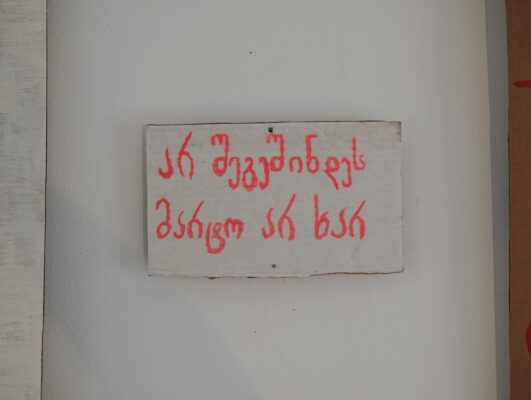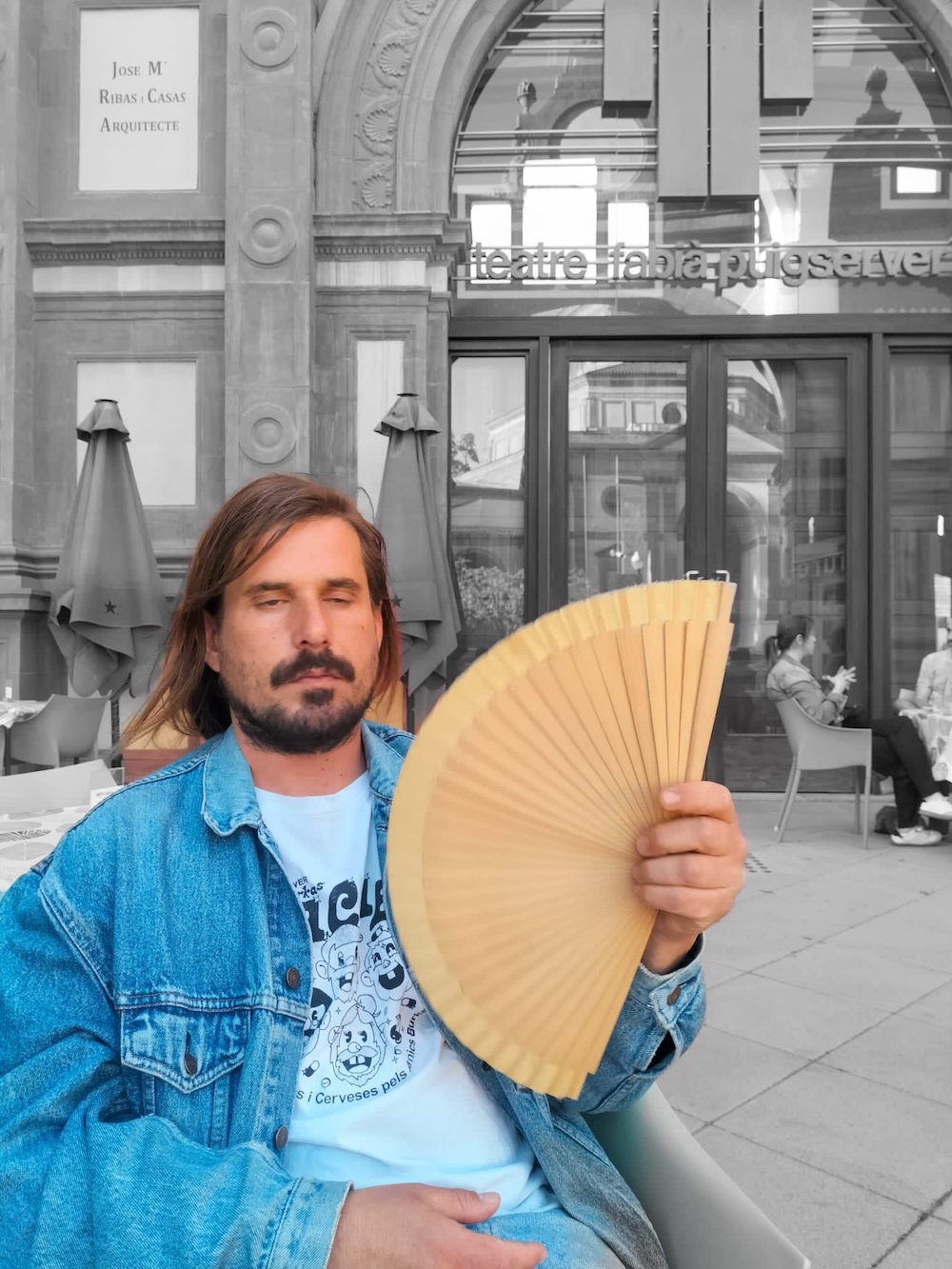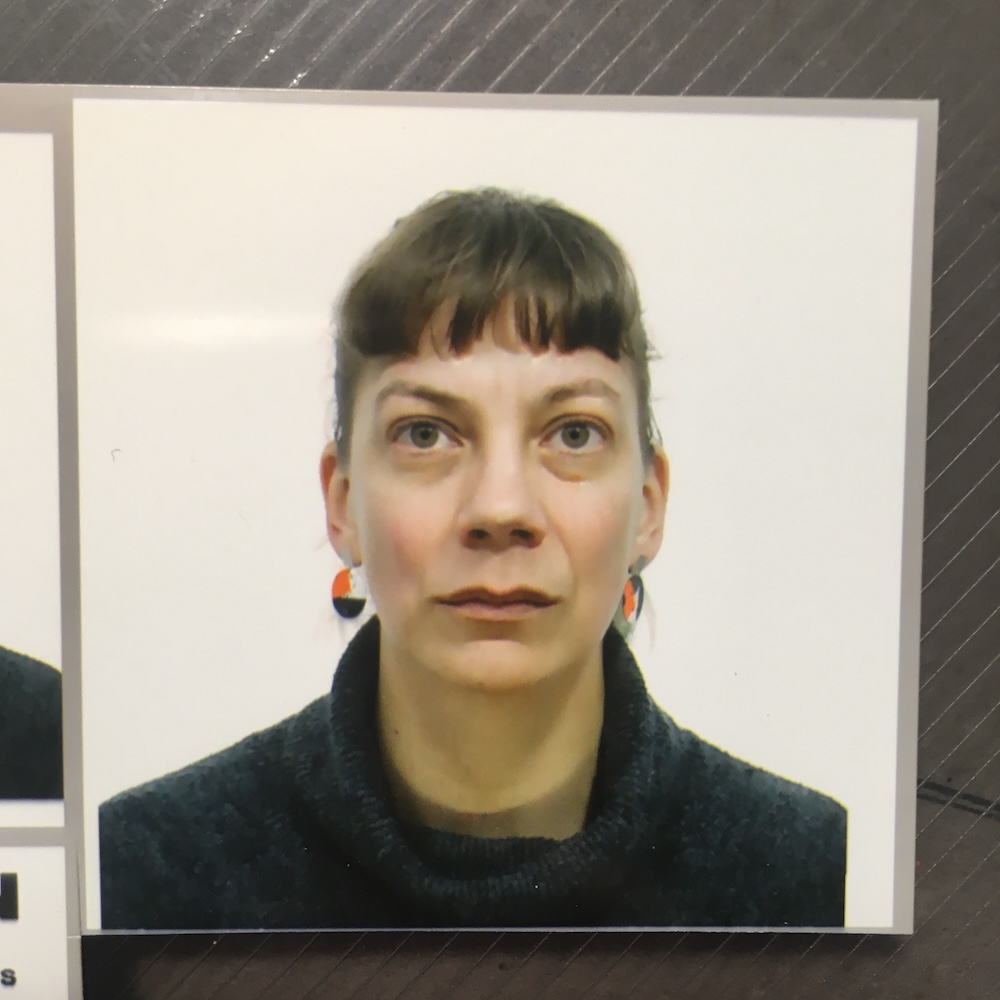Search
To search for an exact match, type the word or phrase you want in quotation marks.
A*DESK has been offering since 2002 contents about criticism and contemporary art. A*DESK has become consolidated thanks to all those who have believed in the project, all those who have followed us, debating, participating and collaborating. Many people have collaborated with A*DESK, and continue to do so. Their efforts, knowledge and belief in the project are what make it grow internationally. At A*DESK we have also generated work for over one hundred professionals in culture, from small collaborations with reviews and classes, to more prolonged and intense collaborations.
At A*DESK we believe in the need for free and universal access to culture and knowledge. We want to carry on being independent, remaining open to more ideas and opinions. If you believe in A*DESK, we need your backing to be able to continue. You can now participate in the project by supporting it. You can choose how much you want to contribute to the project.
You can decide how much you want to bring to the project.

Katharina Stadler: Ferran, I would like to start our conversation by thanking you again for providing your fantastic Georgian-style wine for the presentation of the fanzine ‘on the brink of dying with your time to be told’.
When I presented this fanzine on the origin of my artistic investigation ‘ON DEATH, TIME, AND SACRIFICE’, I aimed to interlink my research on local cosmology in the Khevsuretian mountains with the present-day protests in Georgia.
Ferran Font i Planella: Could youhave imagined that such a political change would happen so quickly?
KS: I don’t think that the current political situation appeared suddenly, out of nowhere. We have been observing, discussing, there have been protests long before the election last fall.
FFP: Then the question is: How can we know things in advance, to then react or not, or know how we should react?
KS: Better to react as soon as possible. It is more difficult to turn things around, to fight against the changes made than to prevent them.
FFP: With all the artistic, cultural andpolitical expression, in Georgia, but also in other parts of the Caucasus. I wonder, what do you think, does art become stronger when one has to fight for something?
KS: I don’t know. I wonder about the decisions artists make. When producing something impeccably becomes more important than what one tries to express, or when one allows a curator for instance to put meaning to a work after it has been created…
FFP: Also, Tbilisi is such a melting pot, throughout history, until today. So many people, cultures, languages… And now everything is being threatened.
KS: That’s why I started to make the protest signs. In the beginning it was a way for me to deal with what was happening, at distance. And then slowly, I also saw the connection to the work in Khevsureti, where a central part questions what is considered ‘truth’ – and we see again and again that the one who decides upon truth is the one in power.
FFP: I feel that Barcelona maybe lacks politics in art, but it is impressive in activism. Regarding the housing issue, the Free Palestine mouvement…
We need to connect these spheres. That is what I love about the Free Music School, the connection between artists, neighbors, activists of different generations, different backgrounds, etc.
We need to connect because societal issues and politics always go hand in hand with the arts.
KS: I agree. One has to take a stance.
FFP: I wonder, the change in Georgia, where does it come from?
KS: I think, for the Georgian Dream it is just a question of power. Power and money.
FFP: But it was obvious before, before the elections, when I was talking to colleagues, that the majority stands for aligning Georgia with the European Union. The young people…
KS: …Not just the young people.
FFP: Of course, one can see this in the centers…
KS: …for me that is an interesting aspect of the protests that erupted. Usually protests are quite Tbilisi-focused, if they are not protests of one specific cause in one specific region. This time, the protests erupted all over the country.
FFP: You went there before the elections, right?
KS: I went as an election observer for ODIHR.
FFP: And you saw that the elections were rigged?
KS: I have seen many things. Before, during and after the election… I have observed the atmosphere of intimidation beforehand. The election campaign warfare. I have noticed quickly after the polling stations opened, that one could easily see everybody’s vote. No secret vote… And then later, when you think that the government formed or rather took up action not following procedures, the laws that have been and are passed, the charges people face when arrested… I see a party turning its back on anything democratic.
FFP: Like a dictatorship.
KS: Yes, like any authoritarian system. For that reason it is important to support independent journalism, to secure that not just some kind of dreamed-up information is shared through Georgian Dream outlets.
FFP: And not only the media is being attacked.
KS: It is not something that just started last fall. It has been a process and that is why it is so important what a friend of mine keeps repeating: We need to protect and fight for our rights while we still have them, while we enjoy them. Not just when they are threatened or taken away. And that is important for us to remember living here in Barcelona.
FFP: Yes, like also the housing situation is a freedom that we are requesting! And then look how few politicians react to these requests, because of course, it is the landlords and owners that they are friends with… And even when they talk about change, it is just talk for years, we are fed lies through time.
KS: In team sports one can see that a team is always only as strong as its weakest link. And society is like this as well. We need more solidarity. On so many levels. More balance.
FFP: More egalitarianism. That is the question, how do we turn into an egalitarian society?
KS: I am not sure. I think the key question is: how do we want to live? How do we want to live with others? And in education. When I work with students, I try to focus on critical theory exactly with this aim, to ask questions…
FFP: But you teach in higher education. If we talk about secondary school, there is a lot of violence, as well as symbolic violence through the division of power, hierarchy, etc. throughout the classroom. It makes me very tired, teaching in this context.
KS: What do you think that you can do in your position as a teacher?
FFP: It is very difficult to answer what can be done. There exist three big influential spheres: school, family and society. We can teach something, like how to draw, but on a day-to-day basis, there are so many things that go beyond ourselves…
KS: I know it is very utopian, but imagine if we think of education at its very base as a place where we learn how to ask questions. And hence learn to understand and discuss the different questions of different people. This as the focus apart from the basics that should of course be taught like reading and writing, mathematics, history…
FFP: Also education today is focused on capabilities, which at its core is a very capitalist concept. Preparing for future work: people who don’t reflect. And then, the reflection is only introduced in higher education.
KS: But this needs to be changed, reflection not as a privilege of higher education but as the basis of all education. Then all kind of things can be viewed and reflected on differently. Like with food. I find it shocking to see how much food ends up in the trash, food that is still edible. And it is not only the food, the tomato for example, itself, but when you think about the whole production cycle of this tomato, how many resources, water, human labor, transport fuel, etc. went into the production, to see this so easily thrown away… So we need to ask questions and reflect from an early age on.
FFP: Yes. But this approach is in no curriculum. And if children, students bring this attitude of asking questions, our society tries everything to cut it off…
—–
Next, and last presentation (for now) of Katharina’s ‘ON DEATH, TIME, AND SACRIFICE’ project:
Sunday, July 6th at 18:00
Fanzine Presentation of ‘PURSUING PSYCHOPOMPOI PERCEPTIBLY’ (Catalunya i Illes Balears)
Free Music School, Carrer de Lleida 39, Poble Sec, Barcelona
[Images: Katharina Stadler. installation view of ‘on the brink of dying with your time to be told’, Free Music School, Poble Sec, 2025. all photos by David Regañas Flores]

Ferran Font i Planella is a French teacher. Graduate in Art History at UB. He went to Rustavi, Georgia for a year to teach Spanish and music through the EVS programme. Ferran learned about Georgian wine tradition and explored the natural wine through a Catalan sommelier who he met in Tbilisi. He joined him in his research about wine and he has been making wine inspired by the Georgian tradition in Vic. Foundational member of the Free Music School / Escola de Música Lliure, Poble Sec, Barcelona.

Katharina Stadler is a Vienna born artist, researcher and writer. She studied Music, Theater and Cultural Communication studies at Humboldt University in Berlin, graduating with a thesis on the interconnection and opposition of voice and silence as worship in Augustine’s writings. After researching in Tbilisi, Georgia since 2007, Katharina moved to Tbilisi in 2010. There she has been running the Informal Master Programs at the Center of Contemporary Art from 2011 to 2013. In 2022 she moved to Barcelona to finish her PhD-project called ‘TERROR SINE VERBIS. on sound & ideology’ under the supervision of Begonya Saez Tajafuerce at the Department of Philosophy at UAB. In June 2024, Katharina obtained her PhD from The University of Art and Design in Linz, Austria. Katharina lives between Tbilisi and Barcelona.
"A desk is a dangerous place from which to watch the world" (John Le Carré)